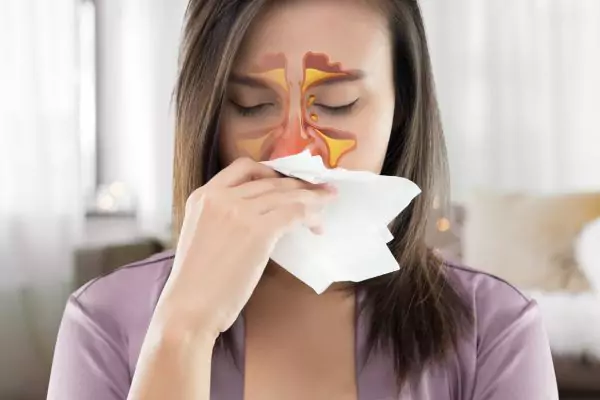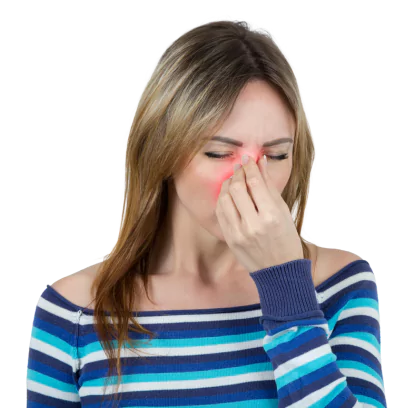On This Page
Sinusitis – Causes, Symptoms and Ayurvedic Treatment
कासारुचिम्रावघनप्रसेकाः कफाद् गुरुः स्रोतसि चापि कण्डूः॥
The inflammation of the tissue lining of various sinuses of the nasal cavity is called sinusitis. In general, nasal sinuses are filled with air. The inflammation of the sinuses leads to its blockage and may get filled with increased tissue secretion. Sinusitis is termed as “Kaphaja Pratisyaya” as per Ayurveda.
Ayurveda assures a complete cure for Sinusitis. Ayurveda has diet measures, regimens, medications, and external procedures for managing Sinusitis.
About Sinus or Paranasal Sinuses
Sinuses are the air-filled spaces within a human skull. The sinuses surrounding the nasal cavity are called paranasal sinuses.
Sinusitis vs. Sinus Infection – What is the Difference?
Generally, both sinus infections and sinusitis have the same symptoms and we can not easily differentiate. It’s the duration of time that exactly tells you whether you have sinusitis or sinus infection.
Sinus infection can be caused due to viruses or bacteria. Excess mucus accumulates in the sinus-filled gaps and leads to swelling and pain. Normal sinus infection can go away on its own after using over-the-counter medications, certain lifestyle changes, and following certain home remedies help in eliminating sinus infection.
Sinusitis can be decoded as “inflammation of the sinuses” in brief and “inflammation of the mucous membrane that lines the sinuses resulting in swelling and pain in the surrounding area” in detail. Sinus infection is simply “the infection of the sinuses” caused due to a virus or a bacteria. One can get attacked by a sinus infection which progresses slowly towards sinusitis. But sinusitis is not entirely caused due to infection it has other reasons for instance allergens causing inflammation of the sinuses.
Although inflammation can occur in any of the sinuses, acute or chronic sinusitis can attack the maxillary and anterior ethmoid sinuses. The sinuses drain into nasal passages which leads to rhinosinusitis secondary inflammation and swelling of the nasal lining and the production of thick mucus which results in nasal congestion and difficulty in breathing.
Sinus infection can last for not more than 2-4 weeks. If the condition persists for more than 4 weeks then we can consider it acute sinusitis, if the symptoms last more than 4-12 weeks, then it is called subacute, if the infection occurs recurrently and lasts for more than 12 weeks or longer, then it can be chronic and if a person gets more than 4 recurrent episodes of sinus infection, then it can be called as recurrent acute sinusitis.
Causes of Sinusitis
Sinusitis can be caused due to various internal and external causes.
- Various Allergies
- Small Polyps
- Septal Deviation
- Drug or chemical reaction
- Smoke may cause sinusitis
According to Ayurveda, the causes of sinusitis are exposure to mist or fog, excess sleep, avoiding sleep during night, using a very low, very high, or improper pillow, drinking excess cold or dirty water, suppressing vomiting and all Kapha dosha increasing measures like water sports, heavy and cold food. In the case of sinusitis, the major doshas affected are Vata and Kapha.
Symptoms of Sinusitis
Acute sinusitis will have similar symptoms to that of cold. Running nose and pain will be felt over the sinus areas. Fever and thick discharge from nose may be observed associated with acute sinusitis. Acute sinusitis may last up to a period of 2 weeks.
Sub-acute sinusitis is similar to of acute sinusitis with extreme manifestation of symptoms experienced in the acute type of sinusitis.
Chronic sinusitis will cause heaviness in head, pain over the sinus areas during some particular time of the day. The symptoms will show a mild nature in case of chronic sinusitis and may last up to a period of 3 months.
Recurrent sinusitis will have a cyclic nature of the occurrence. It occurs in a particular pattern with repeated occurrences within a year. The symptoms will be more or less the same as that of acute sinusitis.
As per Ayurveda, the symptoms of Sinusitis are slimy discharge from the nose, heaviness overhead region, tastelessness, itching inside the nose, breathing difficulty, and general heaviness all over the body.
Ayurvedic Reference of Sinusitis
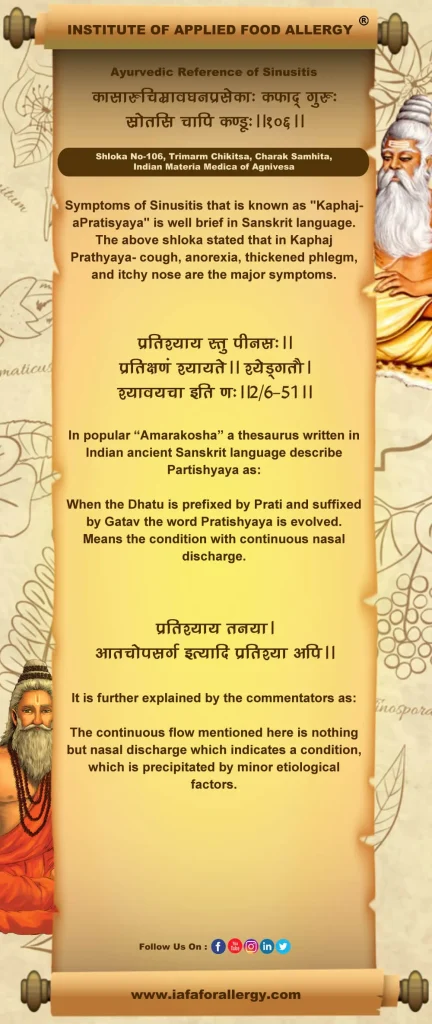

“Sinusitis is a condition that must be managed with immediate attention. The treatments started at the earliest will make the curing process fast. Ayurveda assures the complete cure of sinusitis through natural methods. Dr. Gupta’s Institute of Applied Food Allergy® has proven to be the best in Ayurvedic management of sinusitis through treating plenty of cases with high success rates”.
IAFA holds your hand to wellness!!
– Dr. Sahil Gupta (B.A.M.S., M.H.A.)
Ayurvedic Allergy Specialist
CEO & Founder of IAFA®
At last, Easier Sinusitis Management

Trusted by
More than 90,000 Patients

Convenient
at-Home Treatments

9.2 / 10
Customer Satisfaction Score
Ayurvedic Treatment of Sinusitis
Ayurveda suggests various internal and external treatment measures including Panchakarma for treating sinusitis permanently.
Shunti or Ginger (Zingiber officinale), Marichamor Black pepper (Piper nigrum), and Pippali or Long pepper (Piper longum) are single medicines used in Ayurveda.
Internal medicines like Vyoshadi Vatakam, Talisapatradi Choornam, Agasthyarasayanam, Dashamoola katuthreyam kashayam, and medicated ghee intake are the few internal medicines used in the treatment of sinusitis.
Nasyam (Ayurvedic nasal medications), Vamanam (Ayurvedic vomiting treatment), Steam bath, and special bandages are the external methods used in the Ayurvedic management of Sinusitis.
Diet Management in Sinusitis
The food should be hot and combined with a proper quantity of good quality sea salt. Liquid or semi-solid foods will be more suitable for a person suffering from sinusitis. The diet can be combined with Kapha dosha balancing food materials like barley, wheat, red rice, and butter. Spices like pepper, ginger, and Curcuma can be combined in a diet. Cold generating fruits like apple and banana along with slimy vegetables like eggplant and big tomatoes must are avoided. Water made of Dashamoola (Ten Ayurvedic medicine roots) is also suggestive in curing sinusitis.
Regimen for Sinusitis
The activities including over-exertion and head movement must be reduced or avoided completely as per the guidance of the doctor. Avoiding the chance of getting cold air during traveling will be beneficial in reducing the symptoms of sinusitis. Protection measures must be used for covering ears and head for preventing easy exposure to cold wind.
Pathya (Do’s)
- Food with good nutritive value; include fiber-rich foods, salads, fruits, and lentils.
- Adding coconut water to the diet and always using healthy fats like ghee in cooking is also recommended.
- Eating sweeter, juicy fresh fruits, cooked greens, and leafy green vegetables with a bitter taste will help in hair treatment.
- Fenugreek, turmeric and coriander, cumin, ghee, the oil will also help purify fat tissue and strengthen bone tissue.
Apathya (Don’ts)
- Avoid using hot water for hair wash.
- Don’t apply heat and direct sunlight on the scalp
- Don’t comb your hair before getting dried after the wash.
- Avoid excess sugar, salt, dairy products, meat, acidic food
- Avoid spicy, fatty, hot, and penetrating foods, junk food, and aerated drinks
Yoga and Pranayama for Sinusitis
Yoga practices including Pranayama and Jalneti (cleansing of nostrils with water in a unique manner) are good for sinusitis cure. Yoga asanas or postures namely:-
- Dhanurasana
- Shalabhasana
- Halasana and
- Sarvangasana is good in managing sinusitis.
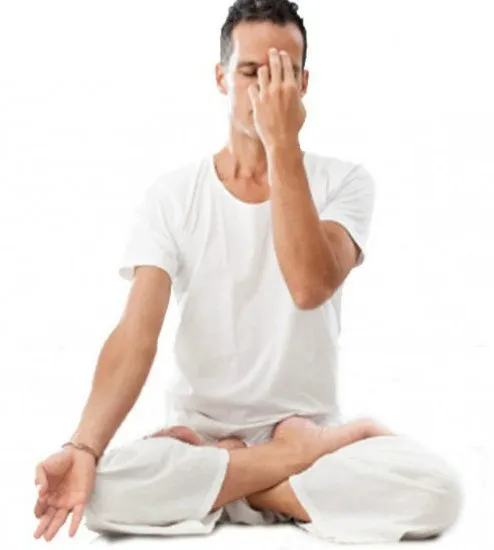
Frequently Asked Questions
Question: What is Sinusitis?
Answer: The inflammation tissues lining of various sinuses of the nasal cavity is called Sinusitis.
Question: What are the Causes of Sinusitis?
Answer: Allergies, polyps, septal deviation, infections, smoke, and certain chemicals substances are the major causes of sinusitis. As per Ayurveda, all activities that increase Kapha dosha may cause sinus inflammation.
Question: Which are the major yoga methods beneficial for managing sinusitis?
Answer: Pranayama and Jalneti can be practiced for getting fast results in sinusitis along with Yogasanas namely Dhanurasana, Shalabhasana, Halasana and Sarvangasana.
Question: What is the cause of Sinusitis?
Answer: According to Ayurveda, sinusitis is caused due to the vitiation of Kapha and Vayu doshas. It is a respiratory tract infection which often goes undiagnosed and untreated.
Question: What are the complications of Sinusitis?
Answer: A delay in diagnosis and failure to get proper treatment can lead to certain complications like abscess, osteomyelitis, meningitis, cellulitis etc. Once the sinus are infected, poor dietary habits and improper management can lead the disease into a chronic phase.
Question: What is the treatment of sinusitis?
Answer: Ayurvedic treatment involves various measures that help to manage sinusitis effectively without causing any side effects. It potentially soothes the mucus, facilitates sinus drainage, helps in decongestion thus providing relief.
Question: What is the treatment of sinusitis?
Answer: Ayurvedic treatment involves various measures that help to manage sinusitis effectively without causing any side effects. It potentially soothes the mucus, facilitates sinus drainage, helps in decongestion thus providing relief.
Question: Why is sinusitis becoming common?
Answer: Due to increase in pollution, changing lifestyle, increase in resistance to antibiotics etc., there is an increase in the prevalence of upper respiratory tract infections.
References
- Shloka No. 106, Trimarm Chikitsa, Charak Samhita, Indian Materia Medica of Agnivesa
- Acharaya P.V. Sharma, Kaiyyadevanighantu, Edition Reprint 2017, Chaukhambha Orientalia, p. 137.
- The Ayurveda Pharmacopeia of India Part II, 1st edition New Delhi, Govt. of India, Dept. of AYUSH, The controller of publications Civil Lines 2000, p. 41.
- Professor K.R. Sreekantha Murthy, Ashtang Hrudaya. Vagbhata (English Translation), Edition, Reprint 2014. Chaukhambha Krishnadas Academy, Varanasi, Sutra Sthana, Chapter 20, shloka 17-20, p. 258.
Dr. Gupta’s IAFA is the leading institution in the management of various immune related disorders. IAFA is the most reliable institution that provides ultimate Ayurvedic treatment for your illness.
IAFA holds your hand to wellness!!
Was this Page Helpful?
So IAFA Ayurvedic Management of Sinusitis is Just 3 Steps Away!

01. Connect With Us
Share your history of illness or Book your appointment

02. Consult With Us
Dr. Gupta a certified Ayurvedic Allergist Consultant

03. Root Cause Treatment
Get an accurate diagnosis, medicines, diet & lifestyle change
Sinusitis – Case Studies
Real Case Studies of Successfully Treated Patients from All Around the World by IAFA Ayurveda®
-
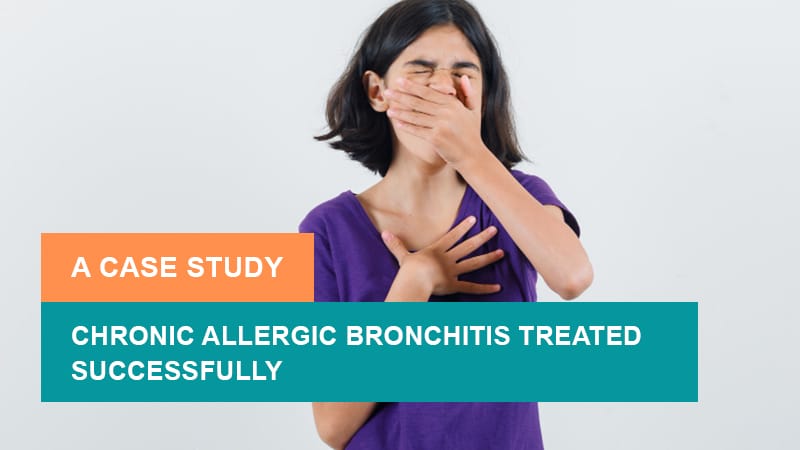
Chronic Allergic Bronchitis Treated Successfully – A Case Study
It is a case study about successful treatment of Chronic Allergic Bronchitis.…
-
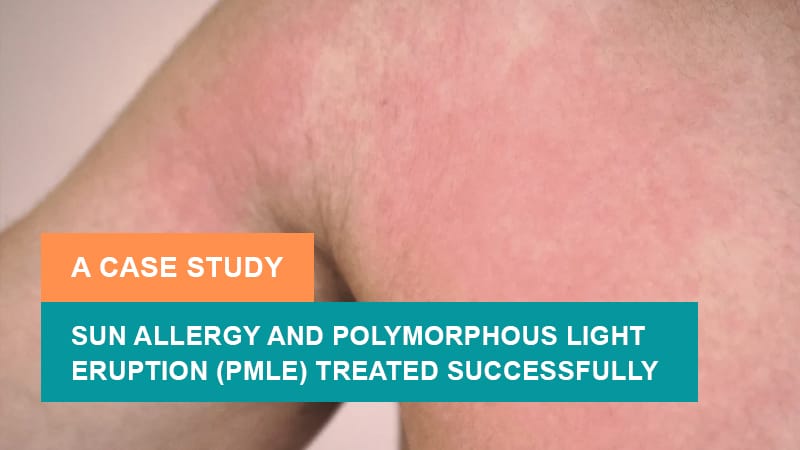
Sun Allergy and Polymorphous Light Eruption (PMLE) Treated Successfully – A Case Study
12 Year old child girl, was suffering from Sun Allergy and Polymorphous…
-

Successful Treatment of Dyshidrotic Eczema and Onychomycosis – A Case Study
It is a case study about successful treatment of Dyshidrotic Eczema and…
-

How Ayurveda Helps to Treat Urticaria With Angioedema Successfully? A Case Study
Learn complete case study about how Ayurveda helps to treat Urticaria With…
Read More Articles
-
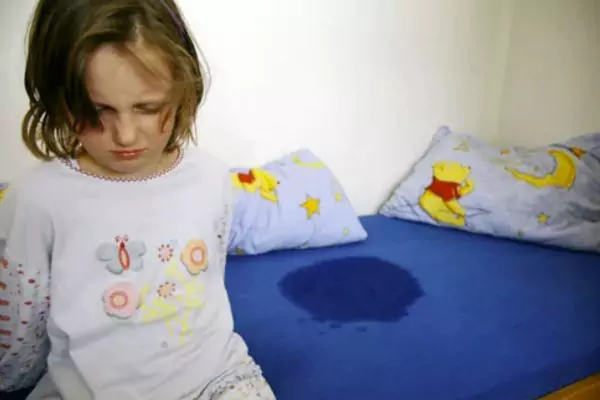
Bed Wetting (Shayyamutra)
Bedwetting is an embarrassing habit in some children where they are unable…
-

Baby Care (Balopacharaneeyam)
It is a comprehensive guide for Baby Care as per Ayurveda. IAFA provides…
-

Attention Deficit Hyperactivity Disorder – ADHD (Vatika Unmada)
Contact IAFA Ayurveda® to get safe and natural remedies for the treatment…

